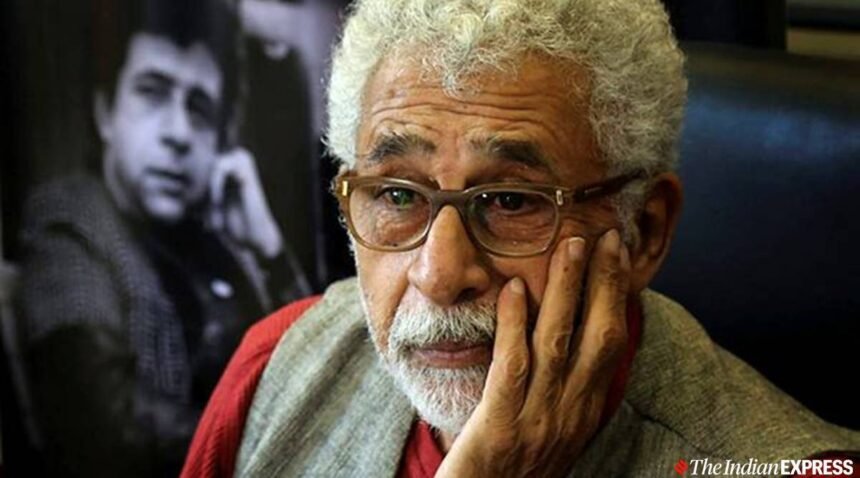Renowned actor Naseeruddin Shah recently expressed his disappointment with the Hindi film industry’s reluctance to address important social issues directly. Shah, known for his vocal criticism of the BJP-led central government, lamented the industry’s historical tendency to remain silent on significant matters. He questioned whether anyone would have the courage to make a movie about the protesting wrestlers in the national capital.
At the age of 72, Shah stands as a respected figure in Indian cinema, admired for his remarkable performances. Currently portraying Emperor Akbar in ZEE5’s period drama “Taj: Reign of Revenge,” the veteran actor raised concerns about the film industry’s stance on crucial issues.
Shah highlighted that the prevalent atmosphere of hate in society only exacerbates the industry’s reticence. Fear permeates the film industry, hindering its ability to take a bold stand. Shah also noted that the Hindi film industry has never been particularly politically or socially aware. While acknowledging progressive filmmakers of the past such as K.A. Abbas and V. Shantaram, who produced socially relevant movies, he suggested that such filmmakers were exceptions rather than the norm.
The lack of proactive engagement by the Hindi film industry in addressing pertinent social issues is a topic that warrants attention. In an era where films have the potential to shape public opinion and bring about social change, the industry’s hesitance to tackle these matters head-on raises questions about its social responsibility.
Throughout history, cinema has served as a powerful medium for addressing societal concerns, provoking thought, and igniting conversations. Films possess the ability to challenge conventional wisdom, advocate for marginalized voices, and provide a platform to shed light on pressing issues. However, the commercial nature of the Hindi film industry often prioritizes entertainment and box-office success over creating meaningful content with a strong social message.
While it is essential to acknowledge that the film industry comprises diverse individuals with varying perspectives and intentions, there is a sense that the industry as a whole has failed to embrace its potential for social impact. This hesitance could be attributed to multiple factors, including fear of backlash, financial considerations, and a desire to cater to a broader audience.
Nonetheless, there have been instances when Bollywood has taken a stance on important social issues. Films like “Pink” (2016), which addressed consent and women’s rights, and “Article 15” (2019), which highlighted caste discrimination, demonstrated that Hindi cinema has the capacity to tackle challenging subjects effectively. However, these instances are still relatively rare, leaving room for improvement.
It is important to note that the reluctance of the film industry to address social issues is not unique to Bollywood alone. Film industries across the globe often grapple with striking a balance between entertainment and social responsibility. Nevertheless, given the vast reach and influence of the Hindi film industry, its potential to spark dialogue and create social change remains significant.
To overcome this hesitancy, it is crucial for filmmakers, actors, and producers to recognize the power they possess and the responsibility that comes with it. By utilizing their platforms to shed light on societal issues, they can contribute to shaping public opinion and fostering empathy and understanding among audiences.
Additionally, it is essential for the audience to demand more socially relevant content from the film industry. By supporting films that tackle important issues and engaging in conversations surrounding them, viewers can encourage filmmakers to explore diverse narratives and address the challenges faced by society.
Naseeruddin Shah’s critique of the Hindi film industry’s inaction on social issues highlights a broader concern within the industry. While there have been notable exceptions, the industry as a whole has been reticent in confronting pressing societal matters.




